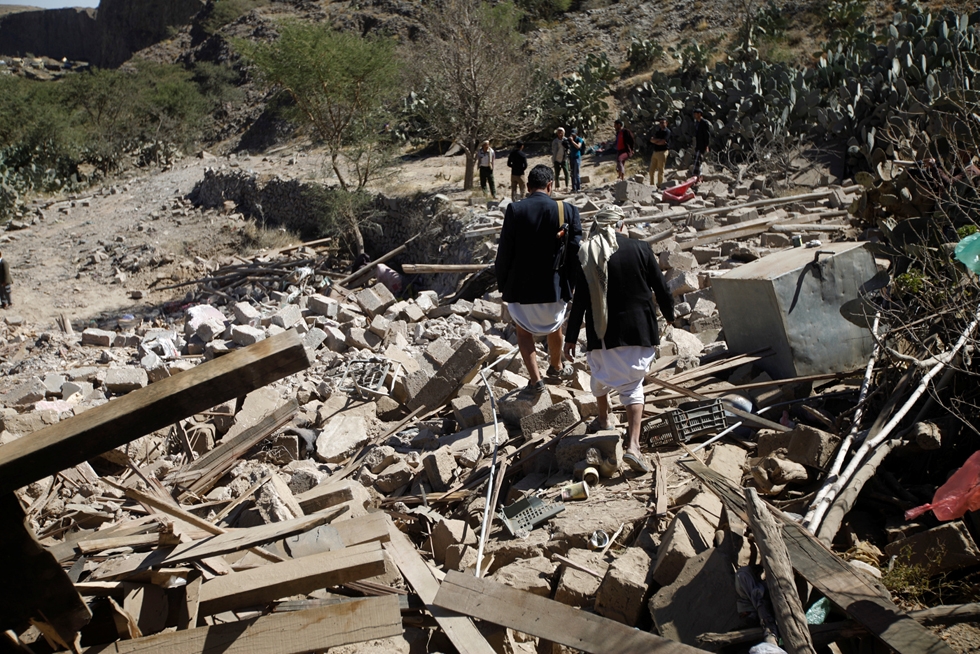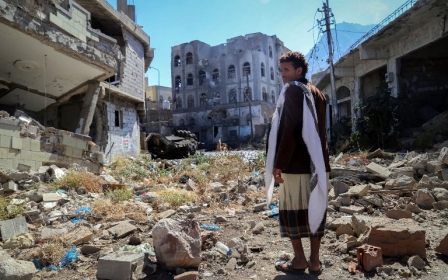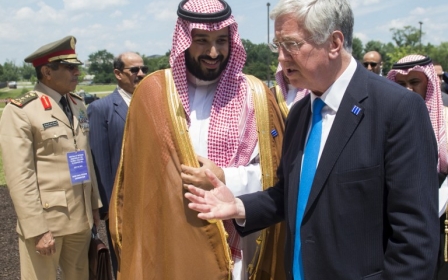REVEALED: UK knew support for Saudis helped Russia justify its Syria campaign

The British government acknowledged a year ago that its support of Saudi air strikes in Yemen was being used by Russia to deflect criticism against its own bombing campaign in Syria.
The admission came in a February 2016 memo released this week as part of a judicial review against the British government to stop arms sales to Saudi Arabia.
In the memo, Freddie Munday, a senior civil servant, warned Defence Secretary Michael Fallon that Russia and Syria had been using Britain's tacit support for Saudi air strikes in Yemen to "deflect criticism" of its aerial campaign in Syria "at the UN".
Munday said he was unsure if the Saudis were complying fully with international humanitarian law (IHL) and noted that the British government had "registered 156 allegations of civilian casualties/breaches of IHL in Yemen".
He also highlighted that the British government believed that Saudi's deliberate targeting processes were "broadly compliant" with IHL, but had "less insight" into the compliance of its dynamic targeting processes. According to British export laws, licenses should not be approved if there is a clear risk that weapons could be used for serious violations.
The court heard on Tuesday that Edward Bell, Britain's top export official, had advised the government to stop the sale of bombs to Saudi Arabia.
In an email to Business Secretary Sajid Javid, Bell said: "To be honest - and I was very directly and honest with the secretary of state - my gut tells me we should suspend."
Javid went against Bell's advice and wrote to the then-Foreign Secretary Philip Hammond and Fallon that he intended to continue granting licenses. "I would like your agreement that this is the right policy for us to pursue at present," he wrote.
Saudi Arabia is Britain's largest customer in arms sales and has signed off the sales of more than £3.3bn ($4.12bn) worth of weapons since March 2015.
'Undermined' humanitarian aid efforts
In a section of the memo entitled "Presentation and media issues", Munday warned ministers that "UK criticism of the air campaign being run by Russia and the Syrian government inside Syria" appeared inconsistent as the Ministry of Defence (MOD) continued to support Saudi air strikes in Yemen.
He also highlighted the "perceived contradiction" between the Department of International Development's humanitarian work in Yemen and the British government's supporrt for the Saudi campaign, "which has undermined [the] delivery of humanitarian aid".
This week's judicial review ran for three days, although the second half of the proceedings was held in secret because, according to the government, secret documents that could harm national security were to be presented.
The court procedure was prompted by the Campaign Against the Arms Trade which challenged the British government to review whether it should license arms exports to Saudi Arabia. A final decision is expected in late March.
Other court documents revealed that a month after the Saudi-led coalition bombed a funeral which killed 140 people in Yemen, Foreign Secretary Boris Johnson pressed Liam Fox to continue exports of weapons to the kingdom.
The air strike, which took place last October, was among the bloodiest in a conflict that has cost the lives of at least 4,600 civilians, according to the UN.
Hundreds of thousands of children in Yemen face life-threatening malnutrition, and the UN has appealed for billions in aid to help millions on the verge of facing famine.
Middle East Eye propose une couverture et une analyse indépendantes et incomparables du Moyen-Orient, de l’Afrique du Nord et d’autres régions du monde. Pour en savoir plus sur la reprise de ce contenu et les frais qui s’appliquent, veuillez remplir ce formulaire [en anglais]. Pour en savoir plus sur MEE, cliquez ici [en anglais].




